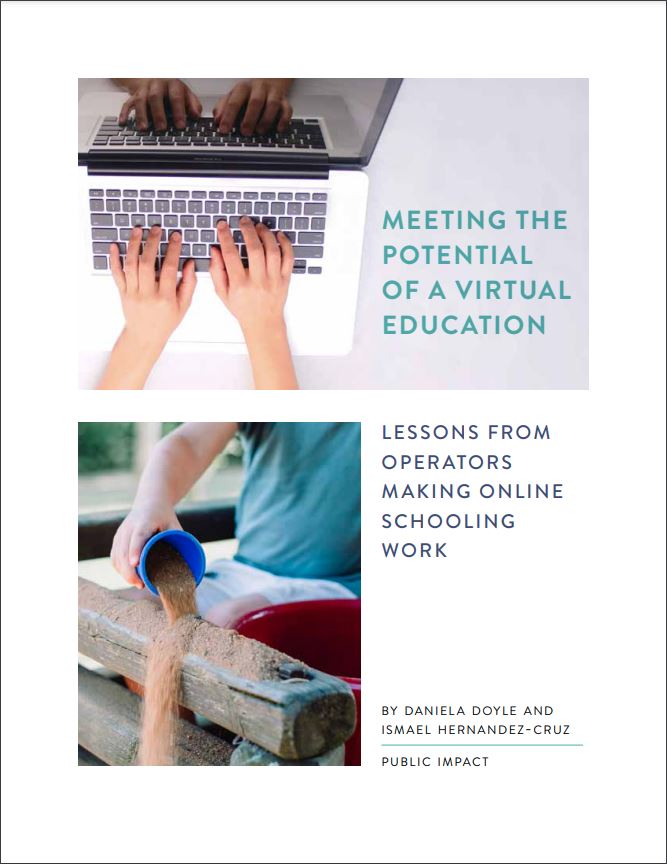In general, virtual charter schools have had poor outcomes. But when we scanned the field for virtual charter schools with positive learning results, we found a few. What can others learn from them to make virtual school success the rule, not the exception? This report highlights the experience of two nonselective virtual charter schools making online schooling work for their students—Idaho Distance Education Academy (I-DEA) and New Hampshire’s Virtual Learning Academy Charter School (VLACS).
The report identifies four lessons and four recommendations for virtual charter schools:
Lessons:
- Strong teaching (still) drives student success—Just as in traditional schools, teacher selection is crucial. No computer program, no matter how great, can replace an excellent teacher.
- Personal connections are key—“We can’t do anything else that we’re doing without that foundational connection,” Jason Bransford of I-DEA said of efforts to form relationships with each student’s entire family. Likewise, VLACS ensures connections to students and families through a deliberate and intensive system of advisors.
- Student learning must be the center of school design—Both schools have incorporated elements of personalized learning by designing their programs around what students need to succeed, with VLACS in particular creating a very flexible, personalized experience.
- Schools set high expectations for students and families—Both make clear from the moment of enrollment that they do not offer an easier education than traditional schools, setting and communicating high expectations even if doing so leads some families to go elsewhere.
Recommendations:
- Be sure to incorporate the same elements that drive student success in brick-and-mortar schools—in many instances, great schools are great for the same reasons, regardless of setting.
- Identify and adjust to what is truly different about online schooling—for example, focus on elements such as effective online engagement and communication, and support and develop teachers in those areas.
- Use the unique opportunities online schooling offers—take advantage of the opportunity to truly meet students’ individual needs.
- Innovate, don’t just automate—focus on using technology in new ways that better meet the needs of all students.

